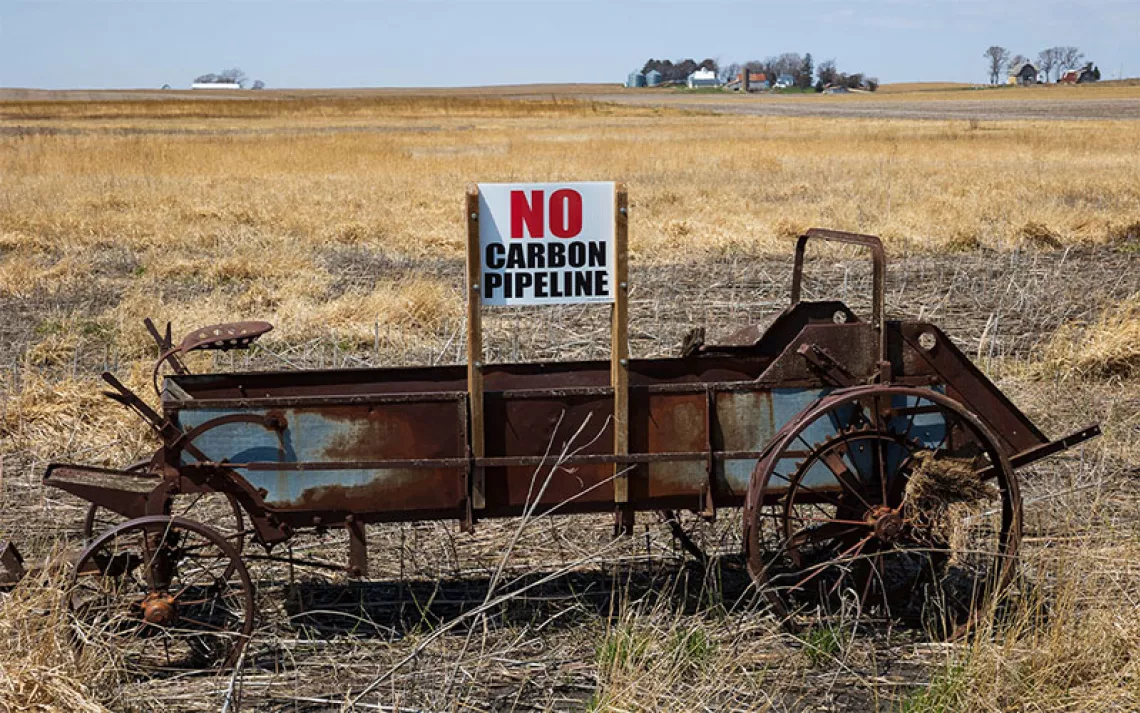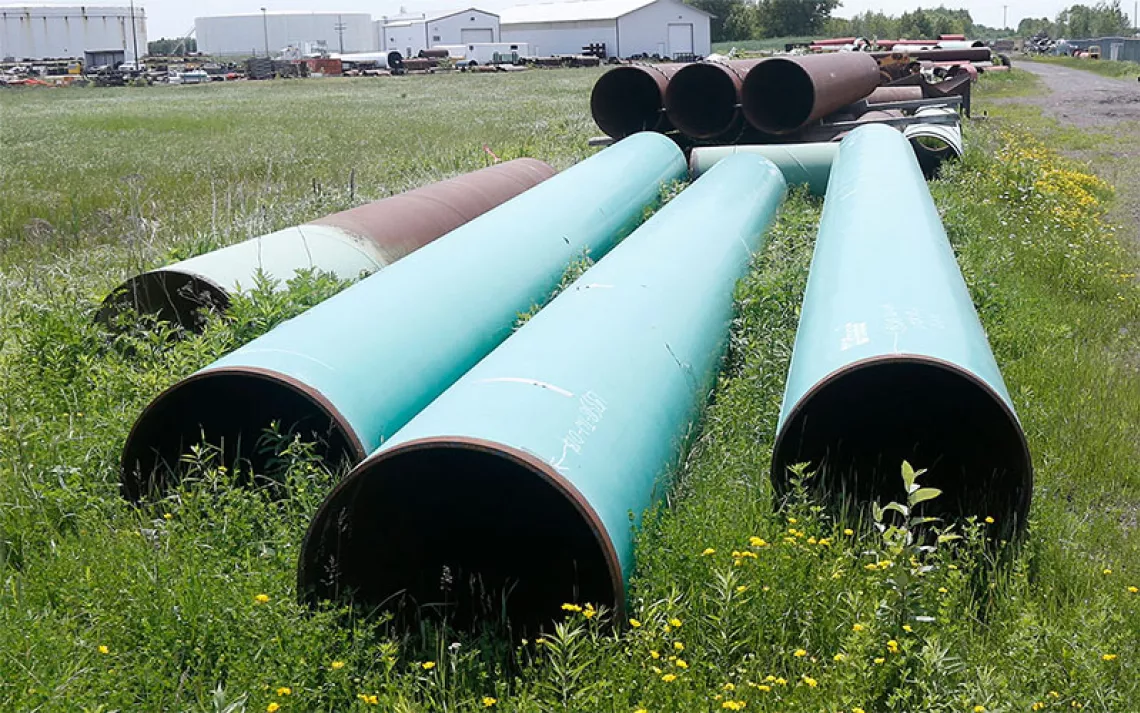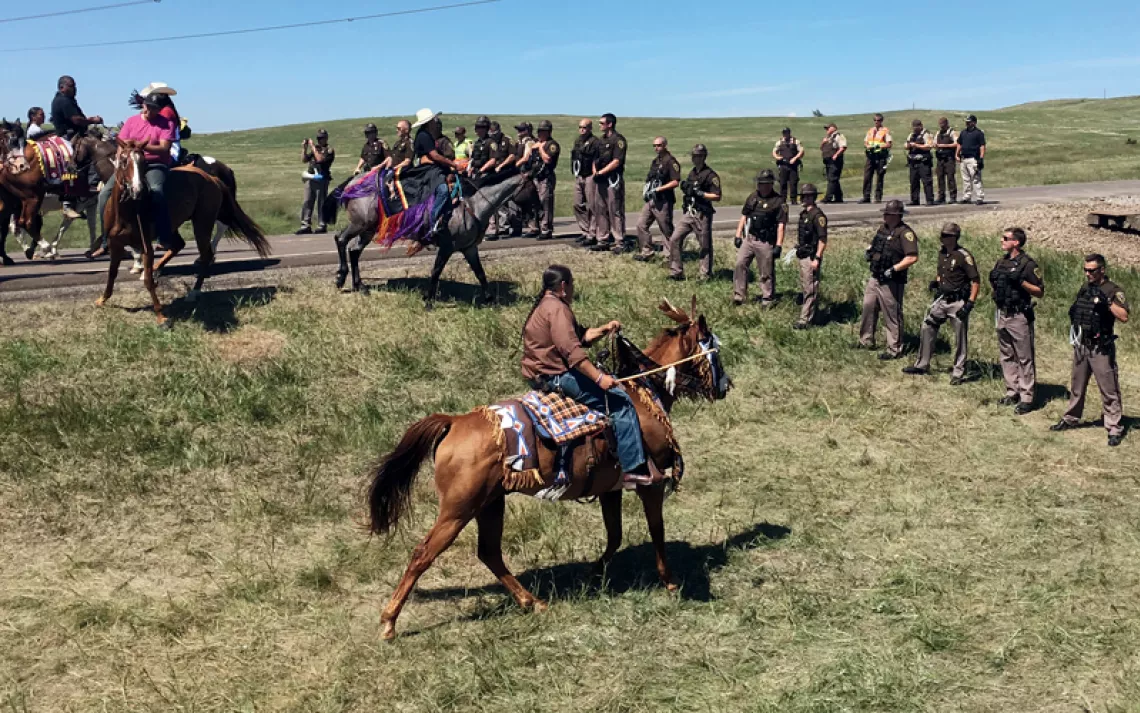Bid to Halt Bayou Bridge Pipeline Rejected Despite Habitat Threat
If allowed to proceed, the pipeline will threaten a delicate wetland ecosystem

Construction in the Atchafalaya Basin | Photo courtesy of Atchafalaya Basinkeeper
The controversial construction of the Bayou Bridge Pipeline in Louisiana will continue despite environmental groups’ pleas for an immediate suspension, a federal judge ruled last week.
On January 30, U.S. District Judge Shelly Dick rejected the request for a temporary restraining order against Energy Transfer Partners, the Dallas-based company leading the construction of the crude oil pipeline.
Energy Transfer Partners had begun the construction in January, prompting the Sierra Club, Gulf Restoration Network, Waterkeeper Alliance, and the Louisiana Crawfish Producers Association (West) to file the temporary restraining order via Earthjustice, which has led the legal fight against the 162-mile-long pipeline project. This is the last leg of the Bayou Bridge pipeline system, which will connect an existing pipeline in southern Texas to Louisiana. With this court ruling, Energy Transfer Partners can continue building while awaiting the outcome of another lawsuit environmental groups filed earlier in January. In that case, the coalition is suing the U.S. Army Corps of Engineers for authorizing the pipeline construction without sufficient environmental review. “The corps’ decision has violated the Clean Water Act, the National Environmental Policy Act, and a number of other environmental laws,” said Sierra Club’s Delta Chapter director, Julie Rosenzweig.
To stop the pipeline construction before their lawsuit is resolved, the groups also requested a preliminary injunction, for which the judge has scheduled a hearing on February 8.
“The judge said we had shown her evidence of irreparable harm, but in her opinion, we didn’t show how we were able to win this case,” Rosenzweig said when asked about the judge’s rejection of the restraining order.
Much of the dispute stems from the pipeline’s planned construction through the Louisiana swampland called the Atchafalaya Basin, which is the largest contiguous bottomland hardwood forest in North America and is essential habitat for thriving populations of mammals, fish, and amphibians. When completed, the Bayou Bridge Pipeline will transport around 480,000 barrels of oil per day to the St. James crude oil hub, where a number of oil refineries are located.
Opponents have held protests near the construction sites, voicing their concerns over the likely damage the construction will cause.

Photo courtesy of L'eau Est La Vie Camp
The Atchafalaya Basin is a delicate wetland with trees that are particular to the area, some of which are hundreds of years old. Environmental groups including the Sierra Club have argued that the pipeline’s construction doesn’t benefit the state of Louisiana, especially since the construction company is not a local business. “There is no economic justification for actually constructing this,” Rosenzweig said. “The pipeline is just a way for a non-local business to capture this part of the market.”
“Energy Transfer Partners has a horrific history of explosions, leaks, and disasters,” said Rosenzweig, who cited at least 15 oil spills and leaks in various pipelines it has built since 2000. Spills and pipe-corrosion-induced leaks have been reported in Louisiana, Texas, Ohio, Kentucky, and Pennsylvania, and in North and South Dakota from the also controversial Dakota Access Pipeline. “And for these cases, damage caused in the pipeline constructions have not been remediated by the companies that have built them,” Rosenzweig said.
Energy Transfer Partners disputes that it has not repaired problems with its project. The company’s website states, “Bayou Bridge Pipeline is committed to restoring 100 percent of any affected area–at the company’s own expense–if there are any impacts from construction or during long-term operations.”
But according to Dean Wilson of the environmental group Atchafalaya Basinkeeper, simply building the pipeline will lead to significant environmental damage. As the pipeline is built across the wetland, soil compaction from the operation of heavy machinery will gradually compromise the soil essential to the growth of swamp trees. To make way for the pipeline, the excess material plowed to the sides of the pipe will form spoil banks, which will block the north-to-south flow of the river. With the river’s flow affected, the water will funnel dirt from the river into the swamp, filling it up. “This will create a delta in the wetland, and the swamp will be dead,” said Wilson, who notes similar outcomes in the Atchafalaya Basin because of other pipeline construction.
The timing of the construction, which coincides with the start of the Gulf region’s rainy season, is also problematic. “Usually, most pipeline constructions don’t begin until after August, when the wet season ends. [Energy Transfer Partners] is doing this to get the money rolling in,” Wilson said.
Despite the recent courtroom setback, environmental groups have not given up on the case. “This is not the final say yet. We will still be proceeding with the lawsuit,” Rosenzweig said. “The litigation is good, in that people keep up with what’s going on.”
 The Magazine of The Sierra Club
The Magazine of The Sierra Club



